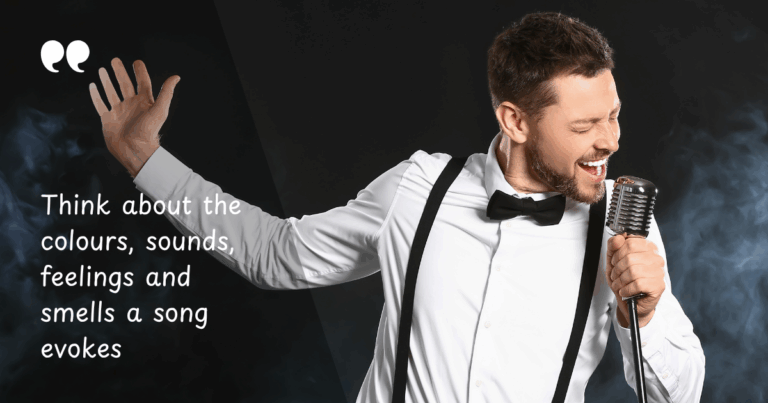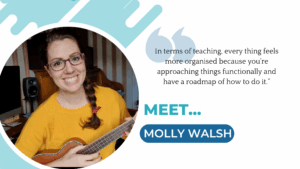Discover how Joe Cavalli-Price uses world-building in his singing lessons to help students unlock expression, emotion and creativity.
Singer and pianist Joe Cavalli-Price has performed at some of Britain’s most august music venues, including Buckingham Palace, Hampton Court Palace and Wigmore Hall.
But it’s his work in hospices that has had the most transformative effect on his approach to singing and teaching.
Joe is the founder of Music in Hospices, a charity that brings the creative arts to people with life-limiting illnesses.
He started the organisation after spending two months by his mother’s bedside as she received end-of-life care in a hospice in Wales.
His mother was non-verbal, so it was difficult for the pair to communicate. But when Joe found an old piano and began playing it, something magical happened.
A ripple of comfort and connection echoed through the hospice, bringing joy to Joe, his mother, other patients and their families, and staff.
The experience planted the seed for Music in Hospices, which now takes performers and musicians into palliative care settings.
New perspective
Speaking on the Singing Teachers Talk podcast, Joe says working in hospices helped to reframe his attitude to singing.
“My mindset has changed from being on this never-ending treadmill of seeking acclaim, notoriety and affirmation through high-level performances and winning the best competitions,” he says.
This new perspective also informs Joe’s approach to teaching. (He works at institutions such as the Royal Academy of Music, Trinity Laban and Italia Conti).
“It’s about taking that same feeling and approach and changing the dynamic in which you apply it to a student in a conservatoire,” he says.
The emphasis is on encouraging students’ self-fulfilment and affirming their talent.
“I’m guiding them in a dialogical way,” he says. “My relationship with the students is teacher-student and student-teacher – we learn from each other.
“My job is to converse with them about music, singing and their vocal technique. I use the skills that I have to bring out what is already inside them – but they’re just not quite sure how to unlock it.”
Using world-building to unlock expression in singers
In the studio, Joe uses ‘world-building’ to help students unlock expression and connection.
“I always explore this idea of cinematography with students,” he says.
“I say to them, ‘When you’re looking at a piece, I’d love you to build it in a way where if I’m switching my TV on and I’m watching you perform, I can imagine this sort of Netflix-like scene or storyboard appearing in front of me’.”
He encourages students to think about the colours, sounds, feelings and smells a song evokes. He also asks them to explore their relationship with the characters and music.
“When you do this, something incredible happens,” he says. “Scientifically, we know that’s because of the vagus nerve. Ninety per cent of what we feel in our heart transmits to the brain; it’s very beautiful.
“Fundamentally, it changes how people breathe and colour words, and their tone of voice and the way they hold the space.
“Suddenly students become exceptionally involved in the music in a very safe, accessible way. It will also adapt and change every time they need to perform.”
Discover more
Listen to Joe’s inspiring and life-affirming story by tuning in to this episode of the Singing Teachers Talk podcast.
Image credit: Canva




